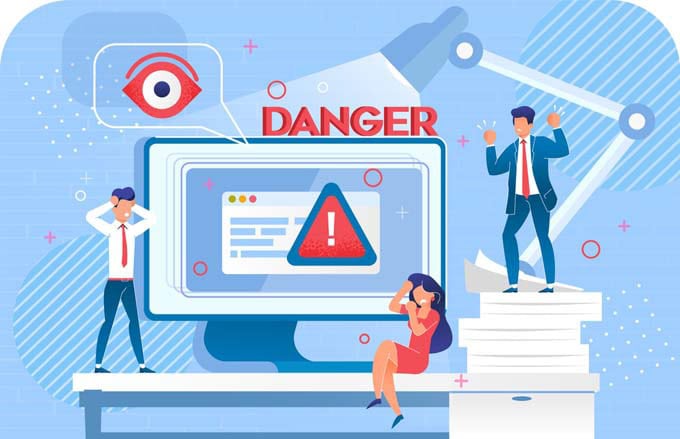Saving as a science
When events such as the lifting of the minimum exchange rate for the euro occur, Swiss managers also come under pressure. Sudden currency differences bring savings measures, but leading managers do not always know the best savings methods.

"It's unclear to me why companies are still trying to unearth potential savings on their own when there are experts to do so," says Alexander Stamm, Rüti plant manager of Weidplas, formerly part of the Automative Division of Wicor, the group of companies in Rapperswil SG. Like many other export-oriented companies, Weidplas must always keep an eye on costs, among other things as a supplier to the automotive industry.
Purchasing is divided into three groups there:
- Strategic Purchasing
- Project-related purchasing
- Factory Purchasing
The strategic costs are audited annually, the other costs every two years. They are mostly made by the plant purchasing department.
Comprehensive as-is analysis
On the recommendation of a Wicor plant manager from Germany, Stamm engaged the consultants from Expense Reduction Analysts (ERA). ERA is a Europe-wide network of independent consultants rooted in the local market. Each consultant has in-depth knowledge in specific areas, especially in the costs that arise in every business. For example, cleaning costs, IT expenses, etc. Alexander Stamm: "With ERA, we were able to buy in expertise and capacity." Of the initial four areas, the two areas of logistics and energy were quickly eliminated "because the general conditions were not such that significant successes could have been achieved," says Stamm. In the case of cleaning and packaging, the process "which was always transparent" continued: "With ERA, an expert was working who could immediately talk to the service providers on a completely different professional level," the plant manager immediately noted.
The process required some internal effort, for example to gather data for the as-is analysis. In addition, a project manager was appointed internally. Stamm: "I think it's very important for the project to have a responsible person on the customer side as well." The results are impressive: "We achieved savings of 30 percent in packaging and 38 percent in cleaning. In both categories, we were very pleased with the expertise of the experts," says Stamm.
The ERA network
"Often, decision-makers cannot even see and judge whether specific costs are justified or not," says Andreas Bünter, one of ERA's Swiss consultants. Roman Rosenstein, who has been in consulting for over 35 years, adds: "Saving is a science, a discipline in its own right. Managers have to deal with many other issues. They can't even have the expertise in every single spending item." Unlike the big consultancies
The ERA model is based on distributed expertise, today we would say "swarm knowledge".
In the case of the management companies, the expense reduction analysts are not made up of a few old hands and many young academics fresh out of university. They are all seasoned managers with a lot of professional experience. For every question, for every expense item, there is a specialist in the European network. "We don't say that each of us knows everything," explains Roman Rosenstein. "Rather, we all know something that may be needed somewhere in the network at a specific point in time."
Cleaning costs reduced by one third
The ERA customer list in Switzerland is prominent. Sprüngli's Luxemburgerli: No, not baked by Rosenstein & Co., but the ERA experts ensured that Sprüngli's production facilities and branches are clean and food-compliant and that the work for this nevertheless costs much less than before: "We have wanted to take a close look at the overhead block for some time and are very satisfied with the choice of Expense Reduction Analysts," says Milan Prenosil, Chairman of the Board of Sprüngli.
Why Prenosil is satisfied? Before the analysis, Sprüngli spent around one million francs on cleaning the production facility, the branches and the company headquarters. Up to eight cleaning companies were employed. Together with the specialists, a new and professional tender was drawn up with a detailed bill of quantities - which was only possible thanks to ERA's expertise - and sent to five suppliers. After the evaluation of the results, the presentations of the candidates and in-depth discussions
In total, 8 man-days came together - actually little for such a process.
In discussions with them, the experts suggested that the work be divided between two suppliers: one for the head office and production, and one for the branches. The result of the process: 45 percent was saved at headquarters, 35 percent at the stores, and 30 percent at the production facility. The total cost savings: 390,000 Swiss francs.
Cost of cost hunters
What are the costs of the cost hunters themselves? It is often the case that so-called savings cannot be realized. The companies are then often left with the - usually high - bill of the external experts; and the already existing and yet hardly reduced cost block is still there.
"We are aware of these issues," says ERA-Rosenstein. "But because we believe in our model, we allow ourselves to be compensated on a contingency basis." In other words, aside from minor initial costs, the consultants get a share of the savings that actually occurred. "This minimizes the risk for the client," Rosenstein says.
Dynamic processes
But what happens if a company gets into big trouble because of the strong franc and doesn't have time to set up a huge process and wait for results in two years? Roman Rosenstein: "That's the clou with us: We can deliver tangible results within 90 days, which can often be implemented immediately. How? Because we don't have to familiarize ourselves with a topic that is new to us, but can immediately draw on the expertise in our network." The expert concludes: "Saving is a science - at least knowing how to do it."









